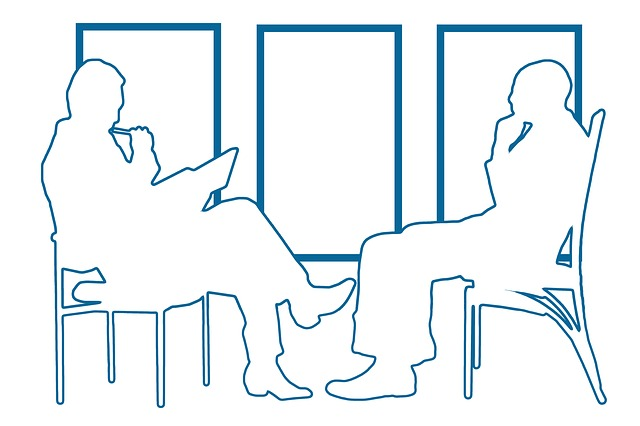What is an Realtor? An Honest Discussion.

A Realtor is a licensed real estate agent who helps individuals buy, sell, and rent properties. The term “Realtor” is a trademarked term and can only be used by individuals who have met the criteria to become a member of the National Association of Realtors and are held to a higher code of ethics and standards of practice than a traditional real estate agent.

Do I need a Realtor?
The purpose of having a Realtor is to provide guidance and expertise to clients in the process of buying, selling, or renting of a property. Realtors have extensive knowledge of the real estate market, the buying and selling process, and local zoning and regulations. They also have access to a network of resources and tools that can help clients make informed decisions and navigate the complex world of real estate.

So, no you don’t need a Realtor, but it makes much more sense to have one on your side!
What should my Realtor do for me?
Realtors play a critical role in the buying and selling process, from listing a property and marketing it to potential buyers, to negotiating offers and closing the deal. They are also responsible for managing all of the paperwork and communication between buyers, sellers, lenders, and other parties involved in the transaction. Realtors are committed to their clients’ interests and are dedicated to helping them achieve their real estate goals.
A Realtor is a valuable resource for anyone looking to buy, sell, or rent a property. Their job is to provide expertise, guidance, and support throughout the entire process, ensuring a smooth and successful transaction. Whether you are a first-time homebuyer, a seasoned investor, or anywhere in between, a Realtor will help you win.

How will I know when I found a good one?
As a real estate professional, there are several essential skills that Realtors must possess in order to succeed in the industry. These skills include:
Communication
Realtors must be excellent communicators, both verbally and in writing. They will be communicating with clients, other real estate professionals, and a variety of other parties involved in a real estate transaction. They need to be able to explain complex real estate concepts in a clear and concise manner, and negotiate terms and conditions of contracts with cooperating brokers and agents.
Marketing
Realtors must have strong marketing skills in order to effectively promote and sell properties. This includes being able to create effective property listings, utilizing online marketing tools, and networking with potential buyers and other real estate professionals.
Negotiating
Realtors must be skilled negotiators in order to effectively represent their clients’ interests. They must be able to negotiate offers, contracts, and other agreements between buyers, sellers, and other parties involved in a transaction.
Attention to detail
Realtors must have strong attention to detail in order to ensure that all of the paperwork and documentation involved in a real estate transaction is accurate and up-to-date.
Time management
Realtors must be able to manage their time effectively in order to meet the demands of their clients, attend showings, and handle the paperwork and communication involved in a real estate transaction.
Knowledge of real estate laws and regulations
Realtors must have a comprehensive understanding of real estate laws, regulations, and best practices in order to ensure that their clients’ transactions are in compliance with all relevant rules and regulations.
Customer service
Realtors must be dedicated to providing exceptional customer service to their clients. This includes being responsive, accessible, and always acting in their clients’ best interests.

A Realtor’s success depends on their ability to effectively utilize a wide range of skills. These skills, combined with their knowledge of the real estate market and their commitment to providing exceptional customer service, are what set Realtors apart as leaders in the real estate industry.
Is a Realtor the same thing as a Real Estate Broker?
No, a real estate broker is a more advanced real estate professional who has completed additional coursework and passed a more advanced licensing exam. Brokers have a higher level of education and experience, and they are authorized to open their own real estate brokerage, manage agents, and conduct real estate transactions.
While both Realtors and brokers are authorized to list and sell properties, the key difference is that brokers are responsible for overseeing the work of agents and ensuring that transactions are conducted in a legal and ethical manner.

What are the best questions to ask when looking for the right realtor?
It is important to ask the right questions in order to ensure that you have found the best professional for your needs. Try these questions:
Can you tell me about your experience in the real estate industry?
This question can help you understand the realtor’s background and level of experience. It will give you a good idea of their knowledge of the local market and their ability to effectively market your property.
How do you approach the process of buying or selling a property?
This question can give you insight into the realtor’s process and their level of professionalism. It will also give you a sense of their communication style and how they handle transactions.
Can you tell me about your success rate in buying or selling properties
This question can help you determine the realtor’s track record and their ability to achieve results for their clients.
Can you provide references from past clients?
This question is important because it allows you to hear directly from others who have worked with the realtor in the past. It can provide valuable insight into the realtor’s performance and their ability to meet the needs of their clients.
Can you tell me about your marketing strategy for buying or selling a property?
This question is important because it will give you an idea of the realtor’s marketing plan for your property. It can help you determine if the realtor has the right tools and strategies in place to effectively market your property.
How do you communicate with clients during the buying or selling process?
This question will give you an idea of the realtor’s communication style and how they keep their clients informed throughout the transaction. It can also help you determine if the realtor’s communication style is a good fit for your needs.

How much is it going to cost me?
The real estate industry is often considered one of the most complex and challenging industries to navigate. With the plethora of legal, financial, and practical considerations involved in buying or selling a property, it is no wonder that many people turn to real estate professionals for help. One of the biggest questions when it comes to hiring a realtor is how much they will save you in terms of time, headaches, and captured value.
It is true that real estate agents typically charge a commission of 6% of the purchase price, but this fee is negotiable and can vary based on a variety of factors. However, the savings that come from hiring a realtor extend far beyond this commission. For starters, a good realtor will save you time by handling the many complex and time-consuming tasks involved in buying or selling a property, such as showings, negotiations, and paperwork. This allows you to focus on other aspects of your life and avoid becoming bogged down in the details of the real estate process.
In addition, a realtor can also help to alleviate the headaches that come with the process. Real estate professionals have the expertise and experience to handle any potential issues that may arise during the transaction, such as contract disputes or zoning problems. They can also provide valuable advice and guidance on how to avoid common pitfalls, such as overpaying for a property or failing to properly prepare your home for sale.
Finally, a realtor can help you to avoid losing money when buying or selling a property. Real estate professionals have a deep understanding of local market conditions and can help you to get the best possible price for your property. They can also provide valuable insights into the latest trends and market conditions, which can help you make informed decisions when it comes to buying or selling a property.

A few helpful terms you might need:

- Listing: A property that is being offered for sale by a real estate agent.
- Closing: The final step in a real estate transaction, during which ownership of the property is transferred from the seller to the buyer.
- Commission: The fee paid to a real estate agent for their services, typically a percentage of the sale price of a property.
- Property: A piece of real estate, including the land and any buildings or structures on it.
- Buyer: A person who is looking to purchase a property.
- Seller: A person who is offering their property for sale.
- Offer: A proposed purchase price for a property, made by a buyer.
- Contract: A legally binding agreement between a buyer and a seller, setting out the terms and conditions of a real estate transaction.
- Escrow: A process in which a neutral third party holds funds or property during a real estate transaction, to be released when certain conditions have been met.
- Appraisal: An evaluation of a property’s value, performed by a professional appraiser.
- Inspection: A comprehensive evaluation of a property, performed by a professional inspector, to determine its condition and identify any defects.
- Market value: The estimated price that a property would fetch if it were sold on the open market.
- Lead: A potential customer or client who has expressed interest in a property.
- Staging: The process of preparing a property for sale, by making it more appealing to potential buyers.
- Marketing: The efforts made by a real estate agent to promote a property and attract potential buyers.
- Showing: A scheduled appointment during which a potential buyer can view a property.
- Negotiations: Discussions between a buyer and a seller, or their respective agents, aimed at reaching a mutually acceptable agreement on the terms and conditions of a real estate transaction.
- Homeowner’s Association (HOA): An organization responsible for managing the common areas and amenities of a housing development, and enforcing the rules and regulations of the community.
- Listing agreement: A contract between a seller and a real estate agent, setting out the terms and conditions of the agent’s representation of the seller.
- Closing costs: The fees and expenses associated with the closing of a real estate transaction, including title fees, attorney’s fees, and transfer taxes.
For more information, check out The National Association of Realtors.